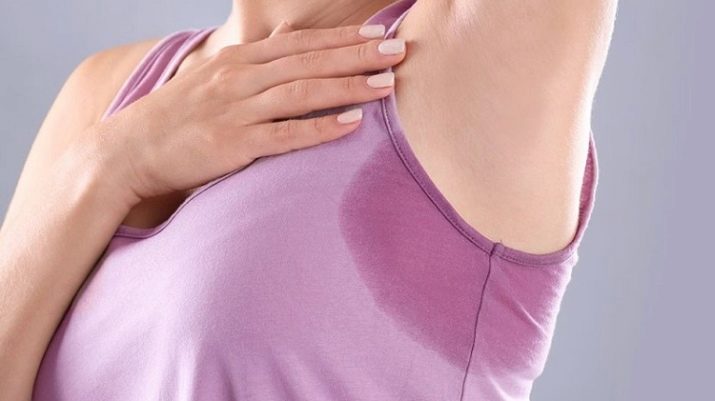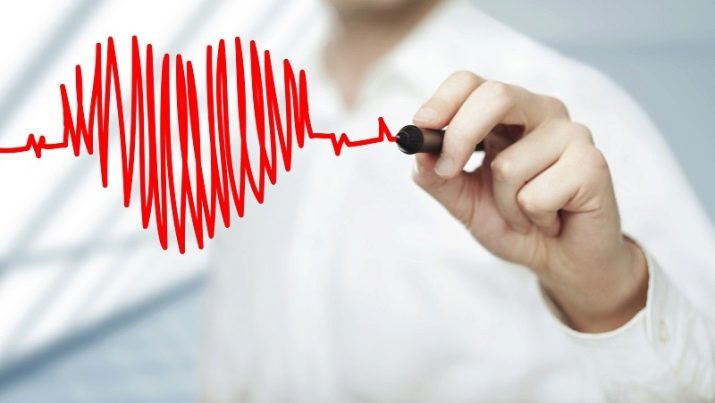Description of the signs of stress

Stressful situations in our life are quite common. However, some people overcome them without any consequences, while others easily fall under the influence of this negative state. Then the emotions of the latter become completely uncontrollable. Nervous strain always has a very bad effect on the psyche, as a result of which a difficult time comes for a person and his loved ones. So how can you identify the symptoms that indicate the onset of trouble? Let's consider this issue below.

Physiological signs
Acne
This trouble can appear suddenly if a person is stressed or has constant anxiety. Why it happens? Various rashes appear on the skin when any abnormalities occur in the body. A nervous breakdown primarily affects a person's appetite and the work of his hormonal system, and it also causes problems in the work of the gastrointestinal tract. Again, stress causes cravings for bad habits: smoking, alcohol, etc. These components have a bad effect on the work of the whole organism. As a result, the skin condition worsens. Please note: extreme stress can lead to the fact that acne on the face may appear immediately after a person experiences this difficult condition.
Why else can acne on the face occur? Strong nervous tension leads to the production of stress hormones. Let's list them: testosterone, corticosteroids, adrenaline, norepinephrine. These hormones stimulate the body to activate metabolism. As a result of this process, the body temperature rises, the muscles overheat. This stage of life leads to perspiration and stimulation of the sebaceous glands. As a result, acne appears on uneven areas of the skin. To remedy the situation, it is necessary to relieve nervous tension. To fulfill this condition, you may be advised to exercise.
It is best to do them outdoors during the daytime. Sunlight lifts your spirits and has a very good effect on the condition of your skin.

Headache
Stress is a kind of adaptation to a negative environment. However, this adaptation is useful if the stress is short-lived. If the situation is aggravated in duration and in various manifestations, then nervous overstrain is definitely harmful to human health. What is stress? This is a nervous tension that is caused by various negative problems and circumstances. This factor often leads to psychosomatic reactions and bad symptoms. First of all, there is a headache.
What determines the nature of symptoms during stress? It depends on the individual characteristics of the organism. Some may experience migraines or headaches, while others may be severely unwell. If a person has a headache very often and does not go away within 2-3 months, then such a symptom may indicate the onset of a chronic condition. If a person is experiencing stress, he can instinctively distract himself from it using the following methods: sit at the computer for a long time or abuse bad habits, etc. Then the headache is caused by a stressful situation not directly, but indirectly.
In addition, stress directly affects the chemical processes that take place in the human brain. If they are inhibited, then this leads to various disorders in the area of \ u200b \ u200bthe muscles, the spine, and even touches the nerves of the skull. Such negative manifestations also cause headaches. Consider the symptoms that are triggered by stress:
- the head hurts, and the pain is concentrated in the temporal part;
- aching pains in the head that cause discomfort.
To get rid of stress headaches, it is recommended to relax.

Chronic pain
It is almost always the result of mental discomfort. If the adrenal glands of a person work almost around the clock and produce stress hormones, then the internal balance will inevitably lead to the destruction of the pain threshold.
As a result, a person's body will have bad reactions, and then the autonomic system will suffer. This failure will lead to increased pressure, sleep disturbance, increased heart rate. Then there will be heart problems and problems in the digestive tract. As a result, a person experiencing prolonged stress will suffer from multidirectional pain. In this case, you should not rush to take medications, but you should use safer methods.
For example, you can engage in various breathing exercises, drink vitamins, apply therapeutic massage, and even use herbal medicine.

Frequent illnesses
Stress dramatically lowers immunity. As a result of nervous overstrain, the human body is forced to spend very large reserves on recuperation. If a bad situation only gets worse, then stocks are inevitably depleted. The body will no longer be able to resist and will begin to use useful reserves: reserves of vitamins and minerals, which are very necessary to maintain vital functions.
As a rule, this leads to various diseases. First of all, a person begins to suffer from respiratory viral infections. Bacteria are in the environment all the time. And if the body's strength is not enough to maintain the immune system, then these pathogens quickly spread throughout the body, causing serious consequences.Therefore, it is necessary to try to learn how to maintain your body during a stressful situation. First of all, stop thinking about the bad and drive negative thoughts away from yourself.
A good mood is the best way to cope with nervous tension.

Changes in libido
If one of the partners is in a stressful situation, then this state will definitely affect their relationship and sex. Therefore, we can safely say: nervous overstrain has a very strong negative effect on libido. Why it happens? Because the human nervous system is divided in two. Each part has the following name: sympathetic and parasympathetic. The sympathetic nervous system is an accelerator, and the parasympathetic, on the contrary, is considered a brake. When a person feels bad, the accelerating nervous system is activated.
That is why the heart rate increases, internal discomfort appears (due to the increased work of the heart), sweating occurs. The body gives you the energy in this way to identify the problem and get away from it with dignity. With prolonged stress, the accelerator starts to slip due to the depletion of resources. As a result, hormonal disruption occurs - a decrease in testosterone production, which provides sex drive. Then the closeness between partners is replaced by aloofness.
Irritation replaces. This factor only exacerbates the situation. Therefore, a person needs to try to get out of a difficult situation as soon as possible. And this will require:
- talk to your partner about your problem;
- try to solve it together;
- accept that sexual desire will be unstable for some time;
- put into practice "inhibiting" stress methods: hug more, have a heart-to-heart talk, etc.

Digestive problems
Under stress, digestive disorders may well occur. Therefore, no matter how strong you experienced stress, the work of the digestive tract will definitely respond to it. Why? Because stress leads to contraction of the muscles of the gastrointestinal tract, as a result of which a person begins an inflammatory process in the digestive organs. Note: The release of stress hormones triggers increased cardiovascular function. This process inhibits digestion. Spasms block the flow of blood into the digestive tract. And this threatens that the production of enzymes and acid decreases.
That's why it is necessary to try to improve the functioning of the digestive tract after stress. To do this, you can set the table so that you have a craving for eating food. Next, make sure that nothing distracts you from eating. Try to focus only on her. If you are very tired, then first take a little rest, and only then sit down at the table. After a hearty lunch, be sure to walk.
Herbal medicine can also help reduce the effect of stress on digestion. To do this, take decoctions of calendula, St. John's wort, dandelion.

Sweating
Neuroreflex mechanisms are responsible for regulating sweating. The secretion of the sweat glands reacts immediately to this factor. Epinephrine and norepinephrine released during stress stimulate sympathetic nerve fibers. They just influence the development of processes launched in the body. First of all, there is a strong sweating. In some people, it can cover the entire body. But usually palms sweat with a surge of negative emotions. The secretion of the sweat glands consists of lipids, proteins and microorganisms. That is why sweat has a characteristic odor under stress.
What you need to do to get rid of stress sweating:
- use antiperspirants;
- carry out hygiene procedures;
- use psychotherapy;
- avoid overheating;
- get rid of bad habits.

Cardiopalmus
Stress triggers an attack of rapid heartbeat. And this is natural.To remove this condition, it is necessary first of all to provide a person with an influx of fresh air. It is advisable to lie down and put something cold on your forehead. Thus, the blood will be saturated with oxygen, and this will help the person to calm down.
You can do breathing exercises. To do this, you need to deeply inhale and exhale air. These actions will help to saturate the blood with oxygen. As a result, the person will quickly calm down.

Behavioral symptoms
In a stressful situation, a person's behavior changes dramatically. And even the most inexperienced person can determine this. Remember that stress comes in the following forms: acute and chronic. The acute form of stress cannot be overlooked. Serious nervous tension may well end in fainting. In addition, a person may become hysterical and start crying. Either he will have a bout of severe pain, or he may have nosebleeds.
No less dangerous and stress, which is considered chronic. They just do not seem to have intense manifestations. However, in the presence of chronic stress in a person's soul, a real emotional storm rages, as a result of which the individual is very quickly exhausted. Please note: Chronic forms of stress are less noticeable. Their danger is as follows: as a result of their influence, a person gradually gets used to a negative mental attitude, and this entails the development of various diseases.
Let us describe how else stress is detected in a person.
- The individual may start to eat a lot, because of which his weight will increase very much. This reason will cause a deterioration in his mood.
- The individual stops eating properly. He will start to eat from time to time, because of which his weight will sharply decrease. This reason will provoke physiological diseases.
- The person may experience insomnia or drowsiness that will not go away even after rest.
- A person can sleep for a very long time. In such cases, his body can quickly recover, since sleep is the best medicine for stress.
- A person can completely isolate himself from society. He will stop communicating even with close people.
- A person may stop going to work, doing household chores, etc.
- A person can become very indifferent to various manifestations emotionally. Neither nature, nor the sun, nor friends will please him.
- A person may develop a craving for bad habits: smoking, alcohol, etc.
- A person can acquire sensorimotor habits: tapping an object with his hand, stomping his feet, etc.

Intellectual and emotional manifestations
In psychology, there is a strong opinion: nervous overstrain definitely has a strong effect on cognitive processes. In the first place, the main components of intelligence are subjected to such an attack: memory and attention. This happens due to the formation of a stress dominant (located in the cerebral cortex). Psychoemotional disorders are formed around her. By and large, this is how the body's acute reaction to stress manifests itself.
As a result, the person becomes inattentive. His thoughts are scattered, and such a process leads to the fact that he cannot think normally. In the case of prolonged stress, a person can make decisions and even be completely responsible for them. However, in order to make these decisions, he will need a very long time. If a person's psyche is exposed to a sudden and strong mental stress, his mental activity falls into a stupor. In most cases, such an individual in the first minutes will not even be able to recognize the place where he is, since the brain is in shock from what is happening.
The inhibition of mental activity under stress can be easily explained: with any mental overstrain, the stress dominant is reinforced by emotions and becomes less vulnerable. This psychological process looks as follows: at the moment of experiencing stress, all convincing arguments in most cases are discarded, and erroneous arguments are taken as a basis. Thus, there is a kind of "brain poisoning with emotions."

Let's describe what needs to be done to rectify the situation. First of all, you must always get enough sleep. To do this, think over a daily routine that will help you manage your time correctly. Then you need to learn to control your emotions. To do this, you can use the following method: Imagine a "STOP" sign in your mind and imagine it if bad emotions and thoughts start to overwhelm you. To recognize the stress a person is experiencing, you need to pay attention to their emotions. They can be either too violent or very lethargic.
We list the symptoms of the phenomenon under consideration:
- refusal from entertainment activities;
- Bad mood;
- tearfulness.
We will find out what to do if you or your loved ones suffer from such manifestations.
- Stop communicating with people who make you feel negative.
- Stop thinking about the things that make you dislike.
- Try to avoid stressful situations at all times.
- You can express your thoughts on a piece of paper, that is, keep a diary. This way you can get emotional release.








